“If the first season was the quiet before the storm, then the second season is very much the storm”: Simon Kinberg on Invasion season two
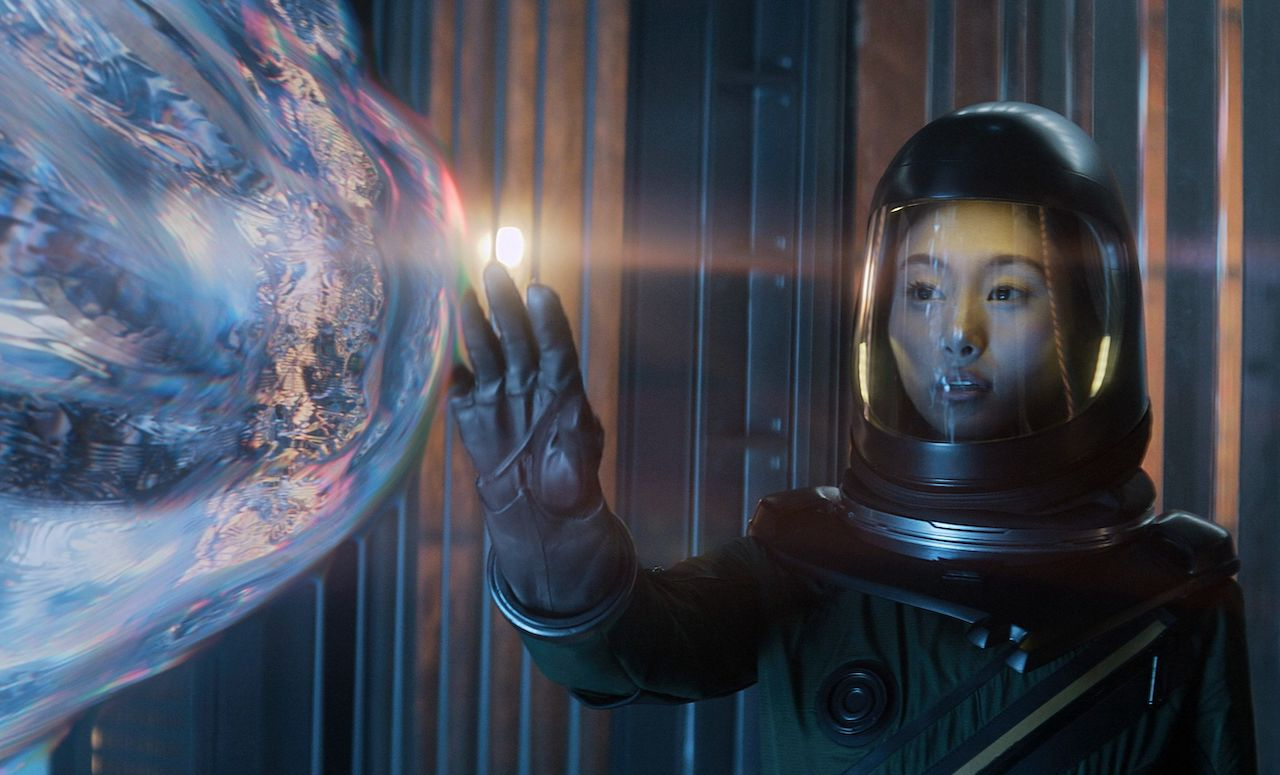
After the first season of sci-fi thriller Invasion laid the story foundations of a global extraterrestrial invasion, the second ramps up the threat, as the war against the human race surges and universal unity becomes the only chance of survival. Action and sci-fi blend in this show for a visual feast of brilliant effects, human compassion and mayhem spread over ten episodes.
The Upcoming had the pleasure of hearing from seasoned producer and writer Simon Kinberg, as he discussed the new season of Invasion, the way the female characters were at the forefront and what viewers can expect from the new storylines. We also touched on his new projects and talked about elements of his extensive film career.
Congratulations, when the first Invasion series came out it proved such a huge success with viewers. What can fans expect from the new storylines as this next season unfolds?
Thank you. The first season was from day one of the invasion. It was a more slow-paced, slow-burn, character story set against the backdrop of an alien invasion. The second season starts months into the invasion, so you’re kind of thrust into a war in progress. It’s a much more high-velocity, high-stakes global impact, in terms of what’s going on this season. There are a lot more connections between the characters, and you start to see why we were telling these particular stories that seemed completely disconnected in the first season. In this case, the first season is like the quiet before the storm, and the second season is very much the storm.
Even from the beginning, we see a shift towards the female-driven characters in this: Mitsuki who’s waging a war against the invading aliens, and Aneesha who is a successful doctor and mother fighting to keep her family alive. There’s Rose too and then President Benya Mobote. It feels like women are very much the driving force in this new season. Do you think that is something that sets this show apart from other sci-fi stories because we usually associate that level of action and physicality towards male characters?
That was definitely by design. Obviously, there are some strong male characters like Trevante, but you’re not wrong, the majority of characters in the show – including Jamila who’s in the kids storyline this season and really the main protagonist of that British storyline – mean it is different from most of the science fiction out there. I mean, there are sci-fi movies like Arrival or Contact where you have a single female protagonist and she’s the hero, but it’s rare that you have an ensemble of different female characters in this genre. Part of that was that I genuinely believe that, if shit hits the fan, it’s usually women rather than men who are the ones we rely on to get us up and out of it. So, protecting the world, protecting a family, protecting a country, protecting a lover, those are things I thought would be more dramatic and more powerful told from the perspective of a female character more than a male character and I thought it would be more original.
I will say some of my favourite characters in science fiction are female. I mean, Ripley in the Alien movies, Linda Hamilton’s character, and Sarah Connor in the Terminator movies are about as good as it gets, there are some really great strong female characters in the history of science fiction, and those happen to be among my favourite films. Where you’re telling an Independence Day type of story, in terms of the global ensemble aspect of it, it’s not Will Smith or whoever else was in that movie, it’s a female. Also having those characters be both international and from different countries and different races too, where we also don’t really have a white protagonist in season two, reflects a world in which we are multicultural from a multi-ethnic world and that’s also something that’s not that common in science fiction, for whatever reason.
You’ve worked with some amazing people. You have visual effects creator Erik Henry on board with this season and from episode two we see this beautiful water amoeba who connects with the character Mitsuki. What was it like having him on board to work with and do you think it elevated the level of storytelling?
Yes definitely. Erik came on through the middle of season one and he was really playing catch up for a lot of the season. By design, the visual effects in season one were not as complex because there weren’t as many aliens and there just wasn’t as much action and there wasn’t as much world creation. This time, Erik and the whole team got to work together from the conception of the season and he gave lots of ideas. Then it was just a back-and-forth, as opposed to him just sort of inheriting scripts, which is what happened in season one. So he was an integral part. I mean, all visual effects supervisors in my experience of working in science fiction movies are an integral part of authoring the project and the earlier they can come on, the better, because they always have great ideas. They’re always incredibly creative, both visually and conceptually. He created some really wild stuff this season, which I’m really excited about because it evolves over the span of the season. There are new aliens. There’s a lot of stuff in and around the mothership. There’s an alien egg – there are all kinds of crazy things, none of which we got into in a hard science fiction way in season one.
Having created films like X-Men and The Martian, the sci-fi genre seems embedded in your very being. What lessons do you think you’ve learnt that you took forward with you for Invasion?
I really think what I learned from making lots of different science fiction movies, like the X-Men movies and also having worked in the Star Wars universe, The Martian and making a couple of movies with Neill Blomkamp like Elysium, is that there’s a lot of science fiction in my life and what I’ve always found works is when people really care about the characters, no matter how cool the visual effects are then they will love the movie. The Martian is the best example of that where it’s such a simple film in many ways, but you just care so deeply about Matt’s character.
If you look through the X-Men movies that I worked on, which if you include the Wolverine movie and the Deadpool movies it’s like ten movies or so, I would say the best ones are the ones where you really care about the characters and although some of the other ones might be bigger in terms of the visual effects in the scope and scale, they are probably not the ones that people imagined to be better, because they just don’t care in the same way.
This must feel like a very busy time of year for you: you’ve got the follow-up to Agatha Christie’s Death on the Nile called A Haunting in Venice where you co-produce with Kenneth Branagh and Ridley Scott. What has that journey been like and what was it like to work with them on set in Venice? What as the appeal of this crime writer’s work for you?
I had worked with Ridley previously on The Martian and I’ve always been a huge Agatha Christie fan. I’d been trying to chase down the rights to the Poirot books for almost a decade, it’d been a long time since I’d met with the Christie estate and it had been bought by one company and then bought by another holding company and it was just really complex because at the same time, Ridley and Mark Gordon, the other producer and I, we were all interested in acquiring the rights to it. We finally all teamed up together and hired Michael Greene, who’s an amazing screenwriter who had already worked on Murder on the Orient Express.
Ken Branagh and I had worked with each other before on probably the least likely movie in my career when I produced Disney’s Cinderella and Ken directed it. I had an extraordinary experience with him because he’s just such an incredible, consummate pro, a lovely man and a gentleman. He just knows exactly what he’s doing and he’s one of the greatest living actors. He seemed like the perfect choice for Orient Express and for the Poirot movies, and then he said he wanted to direct it and play it and we got very excited. He’s just such a pro, he’s like a British, old school theatre director in that he’s off doing his thing and it’s going to be exactly the way he described it from the very beginning before he even began pre-production of the movie. So, he has a very self-contained process and each of the movies is so different, which is cool, too. I think that’s the appeal of a great film.
I really like Ken Branagh, he’s not gonna want to repeat himself and I would say A Haunting In Venice is the most unique of the three and it was Michael Greene, the screenwriter’s, idea to do it. It’s pretty obscure, it’s not remotely as famous as Orient Express but in many ways, it’s the most interestingly, cinematic story that Michael Greene found, because it takes Poirot into a whole different world of the supernatural and questioning the way he looks at the universe, so it’s a kind of a deeper dive into the character than we’ve done before.
I believe you’ve got a series called Sugar out with Colin Farrell and also you’ve got The Killers Game and Lift coming out too. Can you talk about those upcoming projects and where the inspiration for those stories came from?
They are all so different. Killers Game is something I wrote many years ago, so I haven’t been that involved in the production of that. Lift is a script that I read and loved and worked on with F Gary Grey, who directed Set It Off, Straight Outta Compton and Friday and lots of fantastic movies like The Italian Job. It’s a heist movie, with a really crazy idea of having to pull off a heist on a commercial plane while it’s in the air. Kevin Hart is the star, but it’s not as comedic as you would think, it’s a little straighter than that. It sits somewhere between Gary’s movie, The Italian Job and a more comedic movie like Ocean’s 11. It was a really fun movie that was actually shot partly in Venice but also shot all over the world too.
Sugar is a really special show that I’m a producer on with Audrey John (who runs my company) and a bunch of other folk and stars Colin Farrell. The first and last couple of episodes were directed by Fernando Morales, who directed The City Of God and The Constant Gardener; so many great films. It’s a neo noir detective show that takes place in Los Angeles and it’s unlike anything I’ve ever seen. I love the detective genre, obviously having worked on the Sherlock Holmes movies and obviously the Agatha Christie too, but this is something very new for the genre and just tonally and visually, really special. Colin is in this really fantastic place in his career where we’re seeing what an amazing actor he is, where he gets to play these more character-y parts. Sugar is both a very interesting and bizarre character part for him but also a very leading man, kind of old school hard-boiled detective.
Back to Invasion, what do you hope viewers will take away from watching this new season?
Well, I hope they are entertained because I think this is a really entertaining season. I think the mystery box aspect of this season is really exciting too, watching things unravel and watching connections come together. I would say if they take anything away thematically it’s of a more emotional one, that the power of connections is what makes us strong as human beings, whether it’s a connection of a partner or a family or community or country, that is ultimately our greatest weapon against any type of evil but in this particular case, an alien invasion. It’s like this season is really about the power of connections and how much they’re tested before they break and in some ways, the suspense of the season is: will these connections be made? Or will they be broken?
Ezelle Alblas
Invasion season two is released on Apple TV+ on 23rd August 2023.
Watch the trailer for Invasion season two here:

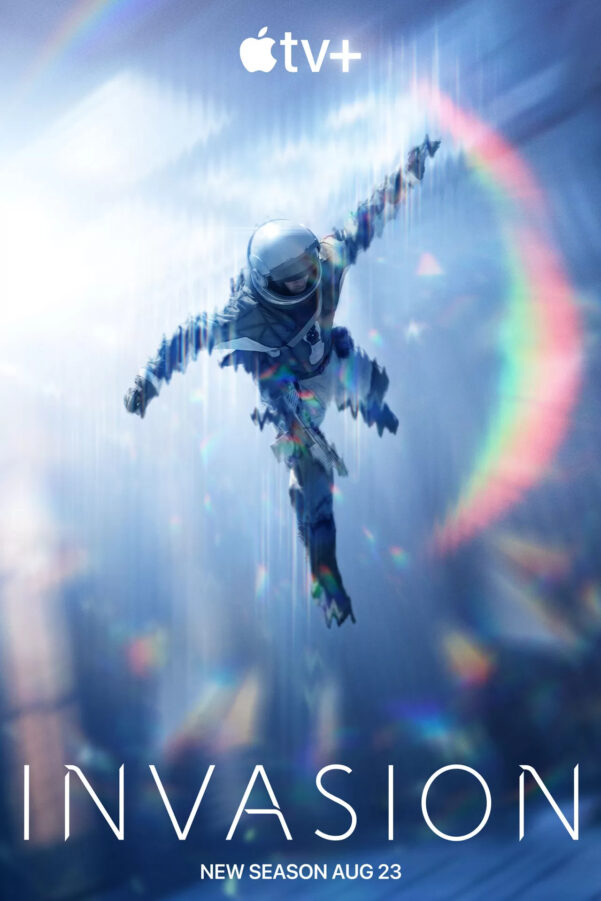
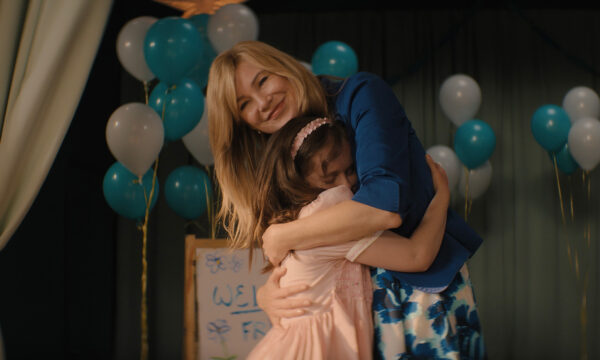
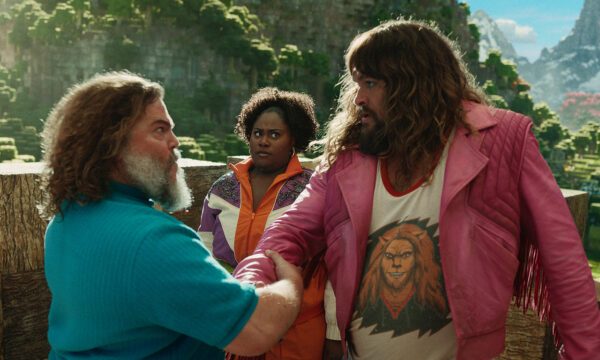
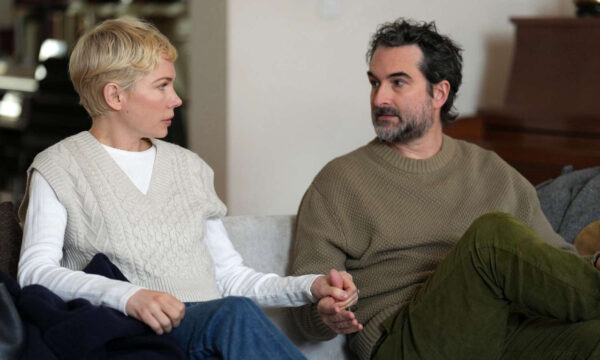
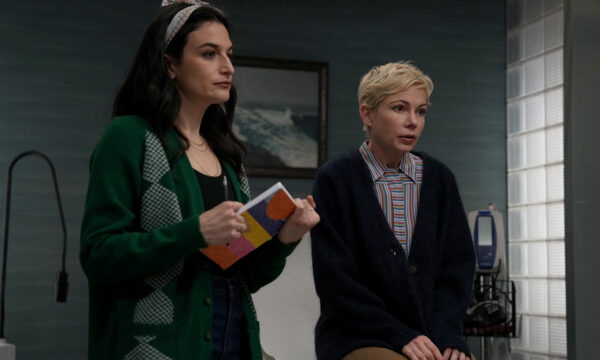


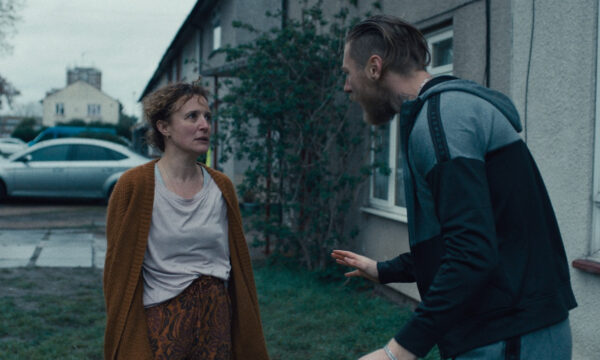









Facebook
Twitter
Instagram
YouTube
RSS